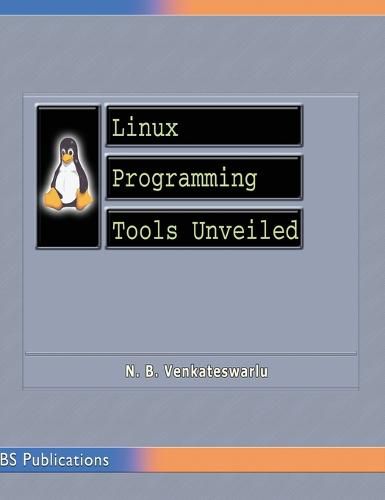Readings Newsletter
Become a Readings Member to make your shopping experience even easier.
Sign in or sign up for free!
You’re not far away from qualifying for FREE standard shipping within Australia
You’ve qualified for FREE standard shipping within Australia
The cart is loading…






This title is printed to order. This book may have been self-published. If so, we cannot guarantee the quality of the content. In the main most books will have gone through the editing process however some may not. We therefore suggest that you be aware of this before ordering this book. If in doubt check either the author or publisher’s details as we are unable to accept any returns unless they are faulty. Please contact us if you have any questions.
In the recent years, Linux, a public domain, freely available Unix variant has attracted the people very much. Today’s complex production environments demands superior application performance. Linux is having extraordinary advantages such as: complete source code access, availability of exceptional optimization, testing tools. This book is to explore this facet of Linux.
Features
Explained Linux success stories with emphasis on facilities and tools available in Linux for SW development Explains gcc (GNU) toolchain in detail, combining C and C++, C and Java, and C and Fortran in a lucid manner How command line arguments can be handled by C/C++ programs with getopt, argp library are dealt Discusses about environment variables and their management System limits are explored with their implication of program performance Explains about how assembly programming can be done under Linux How to mix C and assembly, how system calls can be called from assembly, how modules can be developed in assembly and a bare boot (OS) program creation, are discussed in detail. How static and dynamic libraries are A popularly used tool for detecting memory errors, Electric Fence, is explained with concept oriented examples A chapter on Valgrind explained as to how memory can be checked for memory leaks, segment violations, analyze the cache performance in an illustrative manner Describes memory mapping of files, especially for large files and the impact on program’s performance. Gnu debugger (gdb) is detailed; gcov and gprof explains about profiling of a C program to improve its performance; make, rcs, SW tools explains how they can be used for SW development in practice.with concept oriented examples with special reference to Web enabled applications. developed and commissioned in Linux is explained and how Libtool can be used for library development is discussed Dealt with Lex/Yacc tools, which are to be used in compiler development Memory management, memory errors, Linux memory management, etc., are described with illustrative examples
$9.00 standard shipping within Australia
FREE standard shipping within Australia for orders over $100.00
Express & International shipping calculated at checkout
This title is printed to order. This book may have been self-published. If so, we cannot guarantee the quality of the content. In the main most books will have gone through the editing process however some may not. We therefore suggest that you be aware of this before ordering this book. If in doubt check either the author or publisher’s details as we are unable to accept any returns unless they are faulty. Please contact us if you have any questions.
In the recent years, Linux, a public domain, freely available Unix variant has attracted the people very much. Today’s complex production environments demands superior application performance. Linux is having extraordinary advantages such as: complete source code access, availability of exceptional optimization, testing tools. This book is to explore this facet of Linux.
Features
Explained Linux success stories with emphasis on facilities and tools available in Linux for SW development Explains gcc (GNU) toolchain in detail, combining C and C++, C and Java, and C and Fortran in a lucid manner How command line arguments can be handled by C/C++ programs with getopt, argp library are dealt Discusses about environment variables and their management System limits are explored with their implication of program performance Explains about how assembly programming can be done under Linux How to mix C and assembly, how system calls can be called from assembly, how modules can be developed in assembly and a bare boot (OS) program creation, are discussed in detail. How static and dynamic libraries are A popularly used tool for detecting memory errors, Electric Fence, is explained with concept oriented examples A chapter on Valgrind explained as to how memory can be checked for memory leaks, segment violations, analyze the cache performance in an illustrative manner Describes memory mapping of files, especially for large files and the impact on program’s performance. Gnu debugger (gdb) is detailed; gcov and gprof explains about profiling of a C program to improve its performance; make, rcs, SW tools explains how they can be used for SW development in practice.with concept oriented examples with special reference to Web enabled applications. developed and commissioned in Linux is explained and how Libtool can be used for library development is discussed Dealt with Lex/Yacc tools, which are to be used in compiler development Memory management, memory errors, Linux memory management, etc., are described with illustrative examples